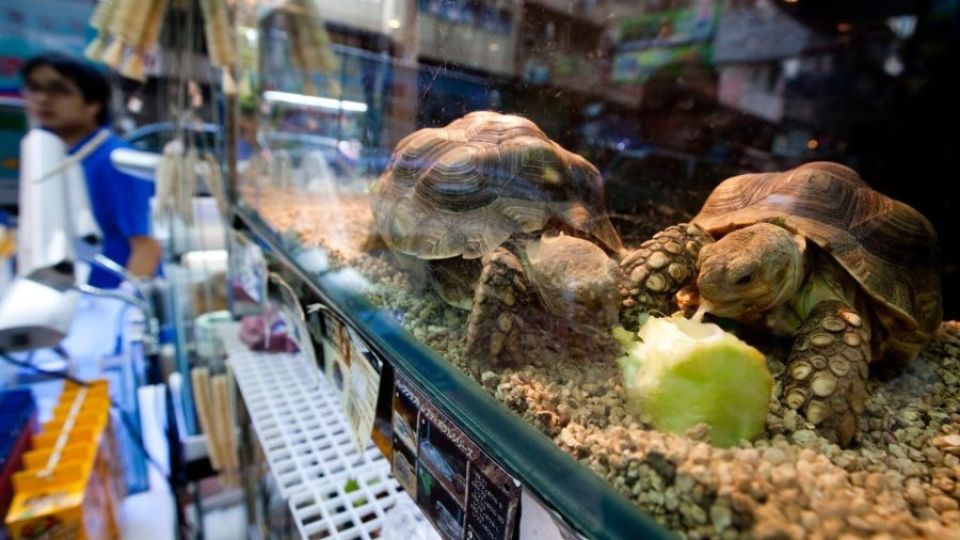September 7, 2023
HONG KONG – Hong Kong has become a major international trade hub for a range of exotic animals, and experts are calling for stricter regulation of the city’s pet trading to protect endangered species, and for clearer information about which species can and cannot be imported, sold or owned.
They also suggested enhancing the traceability of trades in exotic animals, and providing incentives to traders to modify their modes of operation.
A recent survey commissioned by WWF-Hong Kong and ADMCF found that 78 percent of respondents believe Hong Kong’s pet trade regulations should be tightened
According to ADM Capital Foundation (ADMCF), Hong Kong imported at least 5.2 million exotic animals between 2015 and 2021, drawn from over 760 species of reptiles, birds, mammals, amphibians and arthropods.
The World Wildlife Fund’s Living Planet Report 2022 showed that global wildlife populations have declined by 69 percent since 1970, and the wholesale extraction of animals from natural ecosystems to meet the demands of the exotic pet industry is a significant contributor to these declines.
A recent survey commissioned by WWF-Hong Kong and ADMCF found that 78 percent of respondents believe Hong Kong’s pet trade regulations should be tightened, and 89 percent agreed that sellers should provide documentation confirming the legality of any trades in threatened species in advance of the purchase.
Only 5 percent of respondents thought they were familiar with the regulations governing the animal and pet trade in Hong Kong, while over 85 percent believe it’s important to standardize the list of qualified veterinary services for exotic pets and of shops that are licensed to sell exotic pets.
Sung Yik-hei, adjunct assistant professor of the Science Unit at Lingnan University, said that Hong Kong is the last remaining stronghold for trading in several species. Millions of exotic animals have been imported into the city, nearly half of which are species that are facing extinction in the wild.
Sung stressed that protective measures are not implemented quickly enough in Hong Kong and existing safeguards for endangered animals are inadequate. He called for the establishment of an operation protocol between the Hong Kong government’s Agriculture, Fisheries and Conservation Department and the Hong Kong Police Force, and the establishment of a special anti-poaching enforcement unit that will undertake regular, targeted night patrols.
Bosco Chan Pui-lok, conservation director of WWF-Hong Kong, said that the absence of stringent biosecurity measures exposes animals, humans, and the environment to the spread and impact of infectious diseases. Chan pointed out that there are at least 10 cases of zoonoses reported every year in Hong Kong, while only 36 percent of the survey’s respondents believe that keeping exotic birds and animals as pets poses a health risk.
Sophie le Clue, CEO of ADMCF, said that, as the leading importer of many species of live exotic animals from over 90 countries, Hong Kong has a responsibility to the global community to ensure that the trade is not only sustainable, but also safe and includes only suitable species.
According to WWF-Hong Kong and ADMCF, Hong Kong currently has at least seven ordinances governing the trade, yet the rules are challenging to understand and have loopholes that can be exploited. The organizations urge the government to take steps to enhance regulation of the trade and promote public awareness on the need to protect exotic animals.


